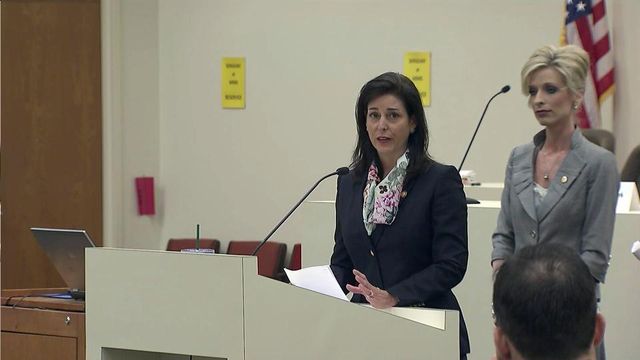House panel OKs longer waiting period for abortions
Women seeking abortions in North Carolina would have to speak with a health care professional about the procedure at least three days before undergoing it under a bill that cleared a House committee on Wednesday.
Posted — Updated"The goals of this bill are really to protect women and to respect women and their choice. There's nothing in here to limit the ability of a woman to choose," said Rep. Susan Martin, R-Wilson, one of four female House members who sponsor the bill.
Martin said extending the mandated waiting period from the current 24 hours to 72 hours would help women make a more informed decision. She noted people are allowed three days to back out of a home purchase or legal contract, and the same rule should apply to abortions.
"This is a very difficult and permanent decision," she said. "You can't go back on this decision once it is made."
Rep. Tricia Cotham, D-Mecklenburg, asked what other medical procedures require such a mandatory waiting period.
Co-sponsor Rep. Jacqueline Schaffer, R-Mecklenburg, said patients seeking voluntary sterilization must wait 30 days before undergoing the procedure, and some health care providers have told her they believe more waiting time should be required on more procedures.
"Providing women with 72 hours versus 24 hours, this is empowering to people," Schaffer said. "This gives people the ability to make an informed decision. It doesn't say that they can't make that decision at the end of the 72 hours."
Several health care providers and groups that provide pregnancy counseling spoke in favor of the longer waiting period.
"We owe women the time to control their fear and emotion and make an informed decision about their life and their child's life," said Dr. Stacy Boulton, an ob-gyn from Raleigh, adding that there was a "negligible risk" of medical complications from waiting for a few days for an abortion.
Two women who had undergone abortions in the past had letters read to lawmakers about their experiences, saying more time would have helped in the decision-making process. A letter from a third woman said the fact that she waited before having an abortion led to her deciding to keep the child.
Only one person spoke against the bill, and Rep. Verla Insko, D-Orange, asked that more people opposed to it be given the opportunity to address the committee. Chairman Brian Brown, R-Pitt, said people were taken in the order they signed up.
Melissa Reed, vice president for public policy of Planned Parenthood of the South Atlantic, called the hearing "a total sham."
"It is already shameful that legislators are putting their own political ideologies over women’s health with this bill, but to then silence the voices of those who seek to remove politics from health care is truly deplorable," Reed said in a statement. "With the committee’s decision to not give time to both sides of such a critical issue, they have made their intentions even more clear that politics, not women’s health, is driving this legislation."
Insko called the proposal a "paternalistic bill," saying it's not medically necessary and goes against the stance the Republican legislative majority has taken in other instances that people need to live with the consequences of their decisions.
"We are removing a woman's right to have control over her own body," she said. "I think that's one of the worst things that happens to a woman is to have someone else make decisions about her body."
Bill sponsors didn't elaborate on why the medical school language was dropped, but Courtney Mitchell, spokeswoman for the UNC Department of Obstetrics and Gynecology & UNC Women’s Care, said prohibiting the schools from instructing medical residents on how to perform abortions could have jeopardized their accreditation.
"If our educational programs in obstetrics and gynecology/women’s health were not accredited, there would be a significant impact on the medical care of women throughout North Carolina," Mitchell said in an email to WRAL News.
Related Topics
• Credits
Copyright 2024 by Capitol Broadcasting Company. All rights reserved. This material may not be published, broadcast, rewritten or redistributed.





